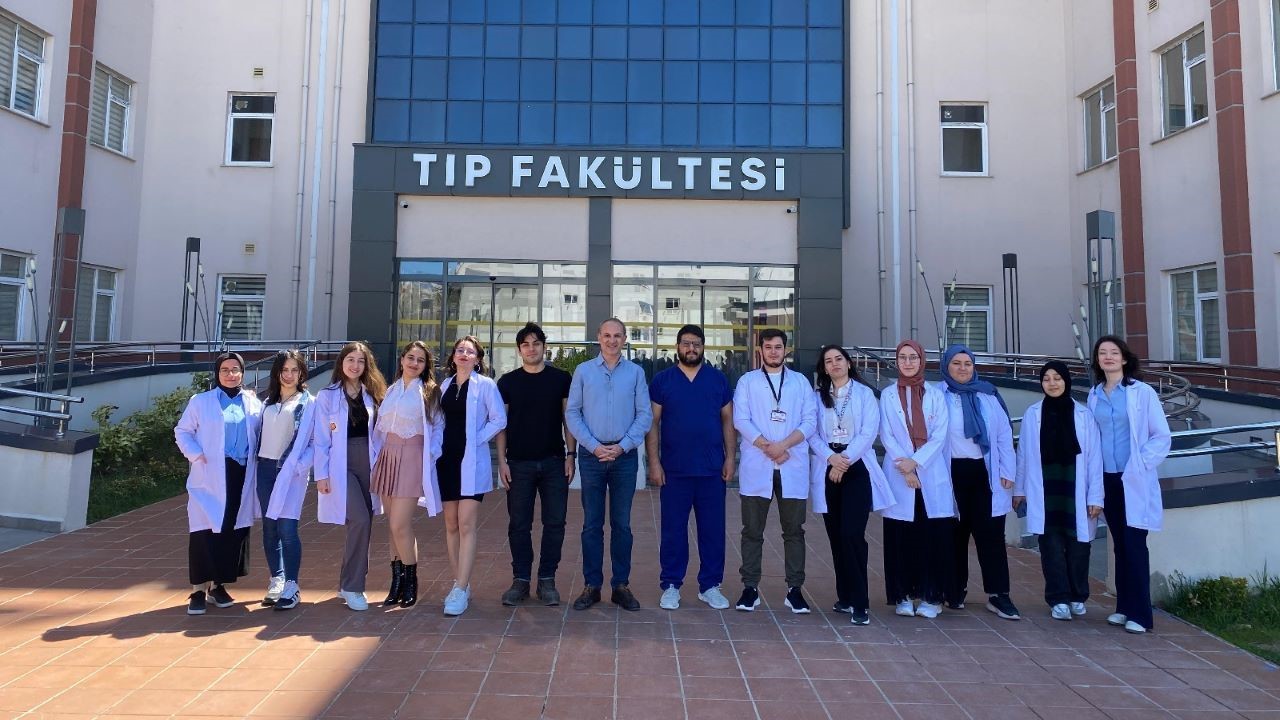Turkey is considered an ideal destination for international students wishing to study engineering. Its universities offer a comprehensive academic system that combines theoretical education with practical application. Moreover, the cost of study and living in Turkey is more affordable compared to universities in Europe, the United States, and other countries.
Turkish universities focus on delivering high-quality education by enhancing the efficiency of academic staff and providing a supportive learning environment. Courses and curricula are designed to integrate theory with practice, helping students acquire both knowledge and hands-on experience, which prepares them effectively for the job market. Engineering laboratories are equipped with modern infrastructure that supports scientific research and the development of professional skills.
Turkish universities offer a wide range of engineering majors, such as civil, architectural, and computer engineering. Graduates of these programs enjoy excellent employment opportunities, competitive salaries, and fast-track career development. In addition, strong postgraduate programs open doors for students to manage their own projects or pursue advanced studies.
Engineering majors are highly popular in Turkey due to the professional reputation and diverse career prospects of engineers. Programs such as energy and electrical engineering provide an excellent educational environment and a rich cultural experience, making Turkey a perfect destination for ambitious students.
While each engineering major requires significant effort, they vary in difficulty. This article explores engineering majors in Turkey, highlighting their advantages, challenges, and expected job opportunities for graduates.
Engineering Majors in Turkey
| Arabic Name | English Name |
|---|---|
| الهندسة المدنية | Civil Engineering |
| الهندسة النووية | Nuclear Engineering |
| هندسة الطيران | Aerospace Engineering |
| الهندسة الكيميائية | Chemical Engineering |
| الهندسة الصناعية | Industrial Engineering |
| الهندسة الإنشائية | Structural Engineering |
| الهندسة الكهربائية | Electrical Engineering |
| هندسة العمارة | Architectural Engineering |
| الهندسة البيئية | Environmental Engineering |
| الهندسة الميكانيكية | Mechanical Engineering |
| الهندسة الطبية الحيوية | Biomedical Engineering |
| هندسة البترول والغاز الطبيعي | Petroleum and Natural Gas Engineering |
| هندسة البرمجيات | Software Engineering |
| هندسة الروبوتات | Robotics |
| هندسة نظم الطاقة | Renewable and Alternative Energy Eng. |
| هندسة الذكاء الاصطناعي | Artificial Intelligence Engineering |
| هندسة الحاسوب | Computer Engineering |
| هندسة الميكاترونيكس | Mechatronics Engineering |
| الهندسة الزراعية | Agricultural Engineering |
| الهندسة الغذائية | Food Engineering |
| الهندسة الإدارية | Administrative Engineering |
| هندسة التعدين | Mining Engineering |
| الهندسة التكنولوجية | Technological Engineering |
| الهندسة الحرارية | Thermal Engineering |
| هندسة السيارات | Automotive Engineering |
| هندسة المعدات الطبية | Medical Equipment Engineering |
| الهندسة الجزيئية والوراثية | Genetic Engineering and Molecules |
| الهندسة الإلكترونية | Electronic Engineering |
| هندسة نظم المعلومات | Information Engineering |
| هندسة الاتصالات | Communication Engineering |
| هندسة الديكور | Decorative Engineering |
| هندسة النانو | Nano Engineering |
| هندسة السكك الحديدية | Railway Engineering |
| هندسة الغابات | Forest Engineering |
| الهندسة الطبية | Medical Engineering |
Engineering Majors Available at Turkish Private Universities
- Genetics and Bioengineering
- Materials Science and Nano Engineering
- Food Engineering
- Software Engineering
- Computer Engineering
- Artificial Intelligence Engineering
- Automotive Engineering
- Biomedical Engineering
- Aerospace Engineering
- Electrical and Electronics Engineering
- Civil Engineering
- Metallurgical and Materials Engineering
- Architecture
- Mechanical Engineering
- Energy Systems Engineering
- Bioengineering
- Interior Architecture and Environmental Design
- Industrial Engineering
- Chemical Engineering
- Mechatronics Engineering
- Information Systems Engineering
Top Turkish Universities Offering Engineering Programs
Includes public and private institutions such as:
- Atılım University
- İzmir University of Economics
- Istinye University
- Istanbul Arel University
- Istanbul Esenyurt University
- Istanbul Okan University
- Istanbul Aydın University
- Istanbul Bilgi University
- Istanbul Gedik University
- Istanbul Gelişim University
- Istanbul Medipol University
- Istanbul Yeni Yüzyıl University
- Üsküdar University
- Beykent University
- Gulf University
- Biruni University
- Altınbaş University
- Işık University
- Bahçeşehir University (Istanbul & Cyprus branches)
- Kadir Has University
- Cyprus International University
- Nişantaşı University
- Yeditepe University
Advantages of Studying Engineering in Turkey
- Availability of cultural workshops, engineering student clubs, and a variety of extracurricular activities.
- Curricula are updated regularly to align with market needs.
- Qualified faculty with strong academic and professional backgrounds.
- Programs emphasize critical thinking and problem-solving.
- Engineering programs are offered in both English and Turkish.
- Practical training is integrated into academic coursework.
- Collaboration with global institutions for modern equipment and academic exchange.
- Internship and job fairs with reputable companies.
- Membership in Erasmus+ enables student exchange with Europe and the US.
- Accredited programs aligned with international standards.
- Scholarships (full and partial) available for international students.
- Affordable tuition fees: Engineering bachelor’s programs range between $3,500–$9,000.
- Diverse cultural and academic environments.
- State-of-the-art labs and workshops.
- International recognition of Turkish engineering degrees.
Tuition Fees and Program Duration (Selected Majors)
| Major | Degree | Tuition (USD) | Duration | Language |
|---|---|---|---|---|
| Civil Engineering | Bachelor | $1,350 – $12,100 | 4 years | English & Turkish |
| Master | $1,030 – $15,000 | 1.5–2 years | Thesis/Non-Thesis | |
| PhD | $4,000 – $15,278 | 4 years | English & Turkish | |
| Computer Engineering | Bachelor | $2,340 – $6,950 | 4 years | Mostly English |
| Software Engineering | Bachelor | $1,350 – $29,810 | 4 years | English & Turkish |
| Industrial Engineering | Bachelor | $2,200 – $21,500 | 4 years | English & Turkish |
| Mechanical Engineering | Bachelor | $1,800 – $12,100 | 4 years | English & Turkish |
| AI Engineering | Bachelor | $2,000 – $8,200 | 4 years | English & Turkish |
| Electrical/Electronics | Bachelor | $3,400 – $9,600 | 4 years | English |
| Architecture | Bachelor | $2,000 – $9,600 | 4 years | English & Turkish |
| Bioengineering | Bachelor | $2,665 – $9,000 | 4 years | English & Turkish |
| Medical Equipment Eng. | Bachelor | $2,665 – $9,000 | 4 years | English & Turkish |
| Administrative Eng. | Bachelor | $4,800 | 4 years | English & Turkish |
| Mechatronics Engineering | Bachelor | $3,250 – $9,000 | 4 years | English & Turkish |
Admission Requirements
For Private Universities:
- 50% minimum in high school diploma.
- No entrance exam required.
- English proficiency certificate or preparatory year required.
For Public Universities:
- 70%+ in high school diploma.
- YÖS or SAT score.
- Language proficiency certificate (English or Turkish).
Required Documents for Bachelor’s Degree in Engineering:
- Recent photo with white background
- Valid passport (min. 6 months)
- High school diploma and transcript
- English (TOEFL) or Turkish (TOMER) certificate (if available)
- Active email address
- Letter of recommendation (for postgraduate)
- Motivation letter
- Updated CV
Note: All documents must be translated into Turkish or English and notarized.
Practical Training and Career Opportunities for Engineering Graduates
- Internship programs with local and international companies.
- Career fairs to connect students with employers.
- Career support services: CV writing, mock interviews, job matching.
- High employment rates among engineering graduates.
- Encouragement of professional networking through workshops and partnerships.
Popular Job Roles by Engineering Major:
(Examples)
- Civil Engineering: Structural Engineer, Project Manager
- Software Engineering: Developer, Data Analyst
- Mechanical Engineering: Product Designer, Maintenance Engineer
- Biomedical Engineering: Medical Device Engineer
- AI Engineering: Machine Learning Engineer
- Electrical Engineering: Power Systems Engineer
Student Life for Engineering Students in Turkey
- Rich cultural and sports activities
- Student clubs and language exchange
- Variety of accommodation options
- Affordable living costs
- Access to international cuisine and cafes
The Future of Engineering in Turkey
- Growth in sustainable engineering and eco-friendly design
- Integration of AI and robotics in tech fields
- Use of advanced technologies like 3D printing
- Expansion of renewable energy industries
- Innovation in medical and genetic engineering
- Global collaboration for research and exchange




